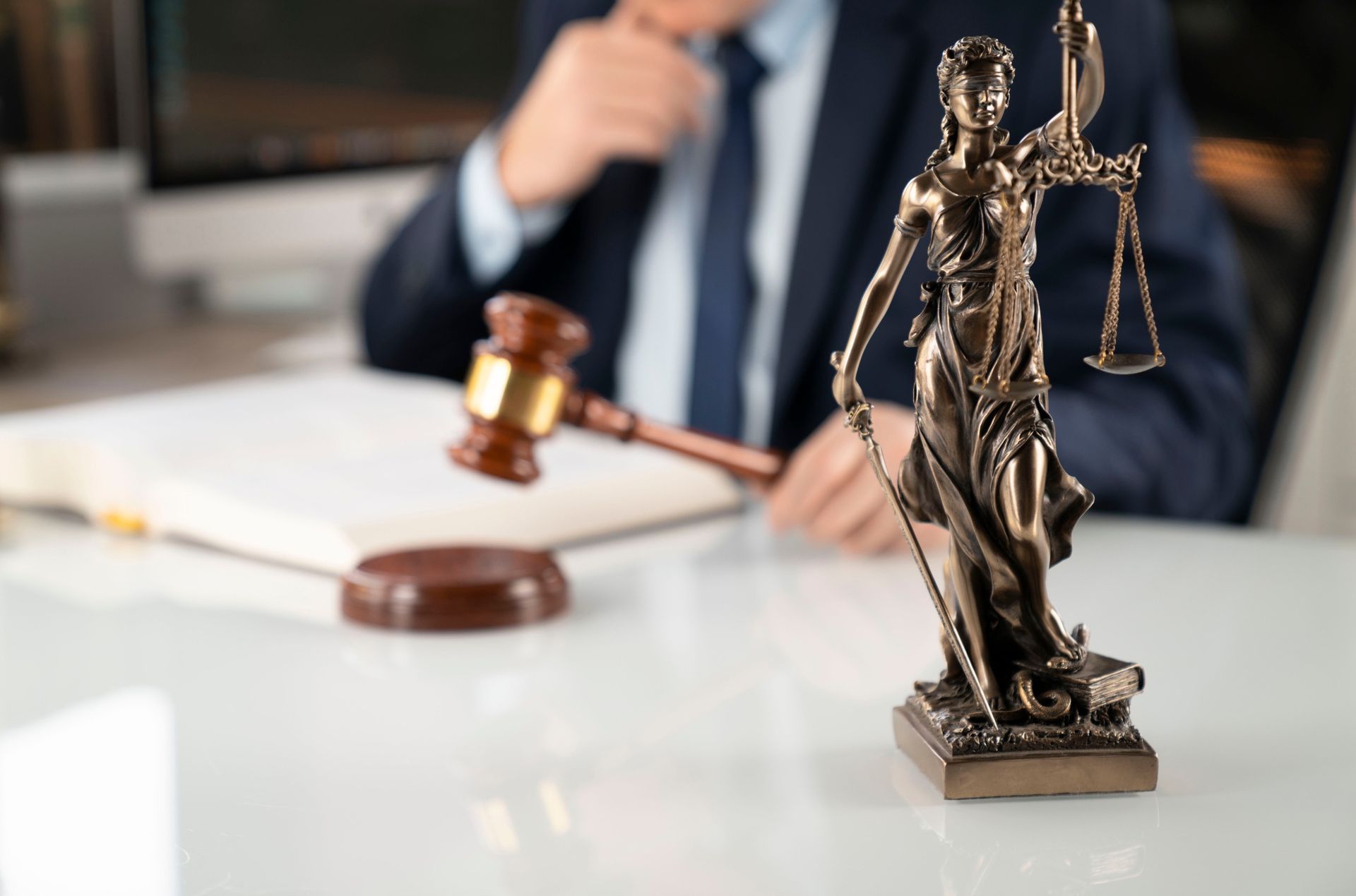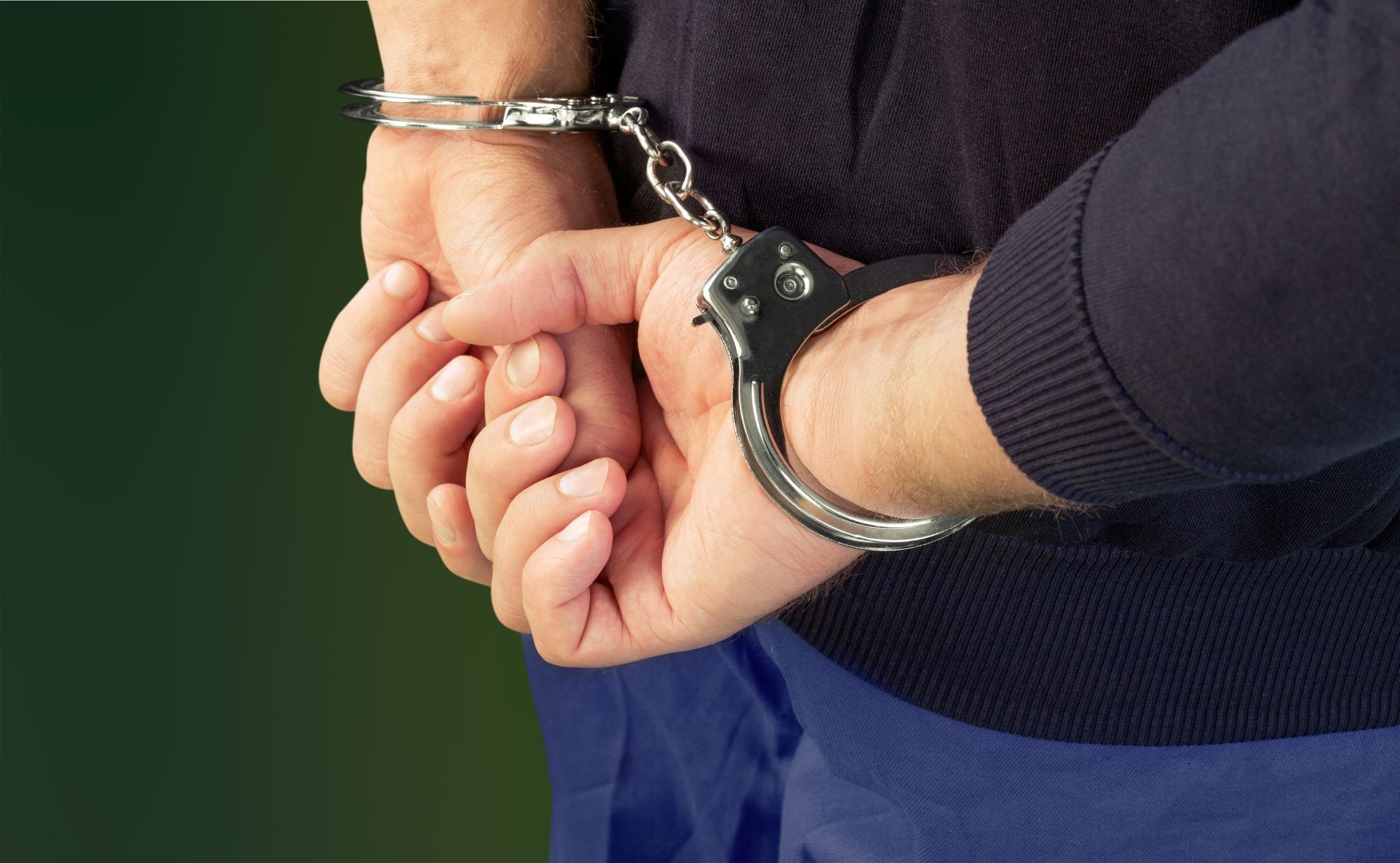Contact Us
Phone: 727-361-6454
Location
5223 Park Blvd #101,
Pinellas Park, FL 33781
Hours
- Mon - Sun
- Open 24 Hours
Call 24/7:
727-361-6454
Hablamos Español
Our Legal Blog
Your Resource For Legal Information

14 Mar, 2024
Theft crimes are a serious issue in Florida, impacting communities and individuals alike. From petty theft to grand larceny, understanding the various types of theft and their consequences is crucial for all Florida residents. In this blog post, we'll explore the different facets of theft crimes within the Sunshine State, providing valuable insights to keep you informed and vigilant. What Constitutes a Theft Crime? Essentially, a theft crime involves the unauthorized taking or use of another person’s property with the intent to deprive them of it permanently. Florida law categorizes theft crimes based on the value of the property stolen and other specific circumstances surrounding the incident. Types of Theft Crimes in Florida 1. Petty Theft Petty theft, often known as petit theft in Florida, is when the value of the property stolen is less than $750. This is further divided into two degrees: Second-degree petit theft: If the property's value is less than $100, it's considered a second-degree misdemeanor, which could lead to up to 60 days in jail. First-degree petit theft: If the value is between $100 and $750, it's a first-degree misdemeanor, and the penalty can be up to 1 year in jail. 2. Grand Theft Grand theft is the taking of property valued at over $750. The severity of charges can vary depending on the value of the property: Third-degree grand theft: Property valued between $750 and $20,000. Second-degree grand theft: Property valued between $20,000 and $100,000, or cargo worth less than $50,000. First-degree grand theft: Property valued over $100,000, or cargo worth over $50,000. Punishments for grand theft can range from 5 years to 30 years in prison, along with fines and restitution. 3. Retail Theft Also known as shoplifting, retail theft involves taking goods from a store without paying. Florida treats shoplifting seriously, with penalties ranging from misdemeanor charges (for lower-value items) to felonies (for higher-value items or repeat offenses). Consequences of Theft Convictions The implications of a theft conviction in Florida extend beyond legal penalties. A theft crime record can affect your employment opportunities, housing options, and reputation in the community. Therefore, it’s paramount to take such charges seriously and seek legal counsel if you're facing allegations of theft. How to Protect Yourself from Theft Crimes 1. Stay Vigilant Always be aware of your surroundings and safeguard your personal belongings, particularly in public areas where pickpocketing or purse snatching can occur. 2. Secure Your Property Use locks, alarms, and other security measures to protect your home and vehicles from burglary or theft. 3. Report Suspicious Activity If you see something out of the ordinary, report it to local law enforcement. Your prompt action might prevent a theft or help catch a thief. 4. Educate Yourself and Others Understanding the nuances of theft laws in Florida can help you recognize potential risks and take proactive steps to avoid being a victim. Theft crimes in Florida carry significant legal ramifications and can cause lasting damage to victims and communities. By staying informed about the different types of theft and taking preventative measures, residents can reduce their risk of falling prey to these criminal activities. Remember, if you or someone you know is facing accusations of theft, it's crucial to consult with a knowledgeable attorney who can provide guidance tailored to the specific details of the case. Stay alert, stay safe, and protect what's yours. Together, we can make Florida a safer place for everyone.

07 Feb, 2024
Pedestrian accidents are a common occurrence in Florida, and unfortunately, they can result in serious injuries or even death. If you have been injured in a pedestrian accident, it is important to know your legal rights and options. That's where a pedestrian accident attorney comes in. In this blog post, we will discuss what you should do if you are involved in a pedestrian accident in Florida and how an attorney can help you. Seek Medical Attention The first thing you should do after being involved in a pedestrian accident is to seek medical attention for your injuries. Even if you don't feel like you were seriously injured, it is important to get checked out by a medical professional as some injuries can take time to manifest themselves. Additionally, having documentation of your injuries from the start can be helpful when pursuing legal action. Contact Law Enforcement After seeking medical attention, the next step is to contact law enforcement. The police report can be helpful when filing an insurance claim or pursuing legal action against the responsible party. Document Evidence If possible, document evidence at the scene of the accident. Take photos of any damage done to your body or personal property and gather contact information from any eyewitnesses. Contact a Pedestrian Accident Attorney Finally, contact an experienced pedestrian accident attorney who can help guide you through the legal process and fight for your rights as an injured victim. An attorney will investigate the details surrounding your case and work tirelessly to secure compensation for damages such as medical bills, lost wages, pain and suffering, and more. Why Choose Our Firm? Our firm has years of experience representing individuals who have been injured in pedestrian accidents throughout Florida. We understand how devastating these types of accidents can be on both physical and emotional levels and are dedicated to fighting for our clients' rights. We take pride in providing personalized attention to each of our clients and strive to secure the maximum compensation possible for their injuries. Being involved in a pedestrian accident can be a traumatic experience, but it's important to remember that you have legal options. By following the steps outlined above and contacting an experienced pedestrian accident attorney, you can ensure that your rights are protected and that you receive the compensation you deserve. If you or a loved one has been injured in a pedestrian accident in Florida, don't hesitate to contact us today for a free consultation.

07 Nov, 2023
Being arrested for drug possession in Florida can be a scary and confusing experience. If you or someone you know is facing drug possession charges, it’s important to understand what to expect and what your rights are. In this blog post, we’ll cover some important information about drug possession arrests in Florida, including whether you need a lawyer, how long police have to file charges, and what your rights are. Do You Need a Lawyer? If you are arrested for drug possession in Florida, it is strongly recommended that you hire a lawyer. Drug possession charges carry serious consequences, including fines and jail time, so it is important to have someone with experience and knowledge of the law on your side. A lawyer can help you understand the charges against you, navigate the legal system, and potentially negotiate a plea bargain or reduced sentence. How Long Do Police Have to File Drug Charges? In Florida, there is a statute of limitations for drug charges, which means that police have a certain amount of time to file charges after an alleged crime has occurred. For drug possession charges, the statute of limitations is three years. This means that if the police do not file charges within three years of the alleged crime, you cannot be prosecuted for that crime. What Are Your Rights? If you are arrested for drug possession in Florida, you have certain rights under the law. These include the right to remain silent, the right to a lawyer, and the right to be free from unreasonable searches and seizures. It is important to exercise your rights if you are arrested, as anything you say can be used against you in court. In addition to these rights, it is also important to know that police must follow certain rules when conducting searches or seizures. For example, they generally need a warrant or your consent to search your property. If your rights are violated during a search or arrest, it may be possible to have the evidence against you thrown out of court. Being arrested for drug possession in Florida can be a daunting experience, but it is important to remember that you have rights under the law. By hiring a lawyer, understanding the statute of limitations, and knowing your rights, you can help protect yourself if you are facing drug possession charges. If you or someone you know is in this situation, don’t hesitate to reach out to a criminal defense lawyer for help.

20 Oct, 2023
Shoplifting is a common offense that can get you in trouble with the law. Many people are unaware of the criminal penalties associated with shoplifting. In Florida, it is essential to understand the degrees of theft charges and whether shoplifting a felony or a misdemeanor. When facing such charges, it is advisable to seek legal help from a trusted attorney. This blog seeks to explain the different types of theft charges, the penalties, and how an attorney can help. Is shoplifting a felony or a misdemeanor? In Florida, shoplifting is generally viewed as petty theft, which is a misdemeanor offense. It involves stealing property that is valued at $750 or less. Shoplifting can result in fines, probation, and even jail time. However, if you have a prior criminal record, the charges could be elevated to felony theft, which can have more severe legal consequences. What is theft in the 1st degree? According to Florida law, theft in the 1st degree is considered a felony. It involves stealing property valued at $100,000 or more. Such charges can result in hefty fines, imprisonment, and other severe legal consequences. Hiring an experienced attorney is essential when charged with theft in the 1st degree as a strong legal defense can help to reduce the charges or penalties. What is theft in the 2nd degree? Theft in the 2nd degree is also a felony offense. It involves stealing property or goods worth between $20,000 and $99,999. People charged with theft in the 2nd degree can also face severe legal consequences that can impact their lives forever, making it necessary to seek legal representation from a qualified attorney who can provide the necessary legal guidance. What is theft in the 3rd degree? Theft in the 3rd degree is classified as a felony offense. It involves stealing property or goods valued between $750 and $19,999. People facing such charges can also face severe legal consequences, including fines, imprisonment, and more. An attorney can help to make a solid case and provide legal representation to reduce charges or penalties. How can an attorney help me? Facing a shoplifting or theft charge can be a stressful experience that can lead to severe legal consequences. Hiring a criminal defense attorney can help to protect your rights and interests. An experienced attorney can provide legal representation to reduce charges or penalties, negotiate plea agreements, or even have the charges dismissed altogether. Having an attorney by your side can help you navigate through the complex legal system and achieve the best possible outcome. Shoplifting in Florida can result in different criminal charges, depending on the value of the goods stolen. While petty theft is generally classified as a misdemeanor, theft in the 1st, 2nd, and 3rd degree are all felony offenses that come with severe legal consequences. However, seeking help from an experienced criminal defense attorney can offer a glimmer of hope. An attorney can provide the necessary legal representation, negotiate plea deals, reduce charges or penalties, or have the case dismissed entirely. Don't take any chances; it is essential to contact a trusted attorney when faced with criminal charges related to shoplifting or theft in Florida.

By Jorge Angulo
•
28 Sep, 2023
White collar crimes are non-violent financial offenses committed by business professionals or government officials. These crimes are often committed behind closed doors, which makes them difficult for law enforcement to uncover. White collar crime offenses can range from embezzlement, fraud, bribery, money laundering, insider trading, cybercrime, tax evasion, and more. If you are facing charges for white collar crimes in Florida, it's essential to understand the different types of offenses and the penalties that come with them. In this post, we'll explore the types of white collar crimes, the penalties for committing them, and how an attorney can help you. Types of White Collar Crimes: White collar crimes can be committed in different ways, but they all involve some form of dishonesty, deception, or financial manipulation. Embezzlement is the most common type of white collar crime, where individuals take money from their employer's accounts for personal gain. Fraud involves false statements or dishonesty to deceive others, such as identity theft, Ponzi schemes, or insurance fraud. Bribery is when someone offers or accepts compensation for personal gain. Insider trading is when someone with privileged information uses it for their benefit. Cybercrime involves using technology to commit offenses such as phishing, hacking, or cyberstalking. Tax evasion is willfully underreporting or not reporting earned income to avoid taxes. Penalties for White Collar Crimes: White collar crimes are serious offenses and carry significant penalties that can affect your career, reputation and result in jail time. The punishments vary depending on the offense you committed, the amount of money involved, and whether you have a prior criminal record. Penalties may include financial restitution, fines, loss of license, probation, or imprisonment. The most severe penalties are directed towards more heinous crimes like embezzlement or insider trading, which can result in lengthy prison sentences and millions in fines. How can an attorney help me? If you are facing charges for white collar crimes, you must seek legal advice from an experienced attorney who understands both federal and state laws. An attorney can help defend your rights, mitigate the charges and negotiate plea deals to lessen the penalties. Attorneys at Angulo Law Office, P.A. specialize in defending clients who are charged with white-collar crimes in Florida. They will evaluate the evidence against you, the conduct of the prosecution, and provide you with the most effective defense strategies. In conclusion, white collar crimes are serious offenses that can have a significant impact on your life. If you find yourself facing charges for white collar crimes in Florida, don't hesitate to seek legal assistance. At Angulo Law Office, P.A., we understand the complexities of white-collar criminal cases and have a track record of successful outcomes. Our attorneys will work tirelessly to provide you with a robust defense strategy and ensure that your legal rights are protected. Contact us today to get started on your defense.
Schedule a Case Evaluation
Contact us now!
Homepage FCE Form
Thank you for contacting us.
We will get back to you as soon as possible.
We will get back to you as soon as possible.
Oops, there was an error sending your message.
Please try again later.
Please try again later.
By submitting this form, you agree to be contacted by our law firm, either by phone, text or by email.
Practice Areas
Hours
- Mon - Sun
- Open 24 Hours
Disclaimer: The information on this website is for general information purposes only. Nothing on this site should be taken as legal advice for any individual case or situation. This information is not intended to create, and receipt or viewing does not constitute an attorney-client relationship.
© Copyright 2023 | All Rights Reserved | Angulo Law Office, P.A. | Powered By Convert It Marketing | Privacy Policy





